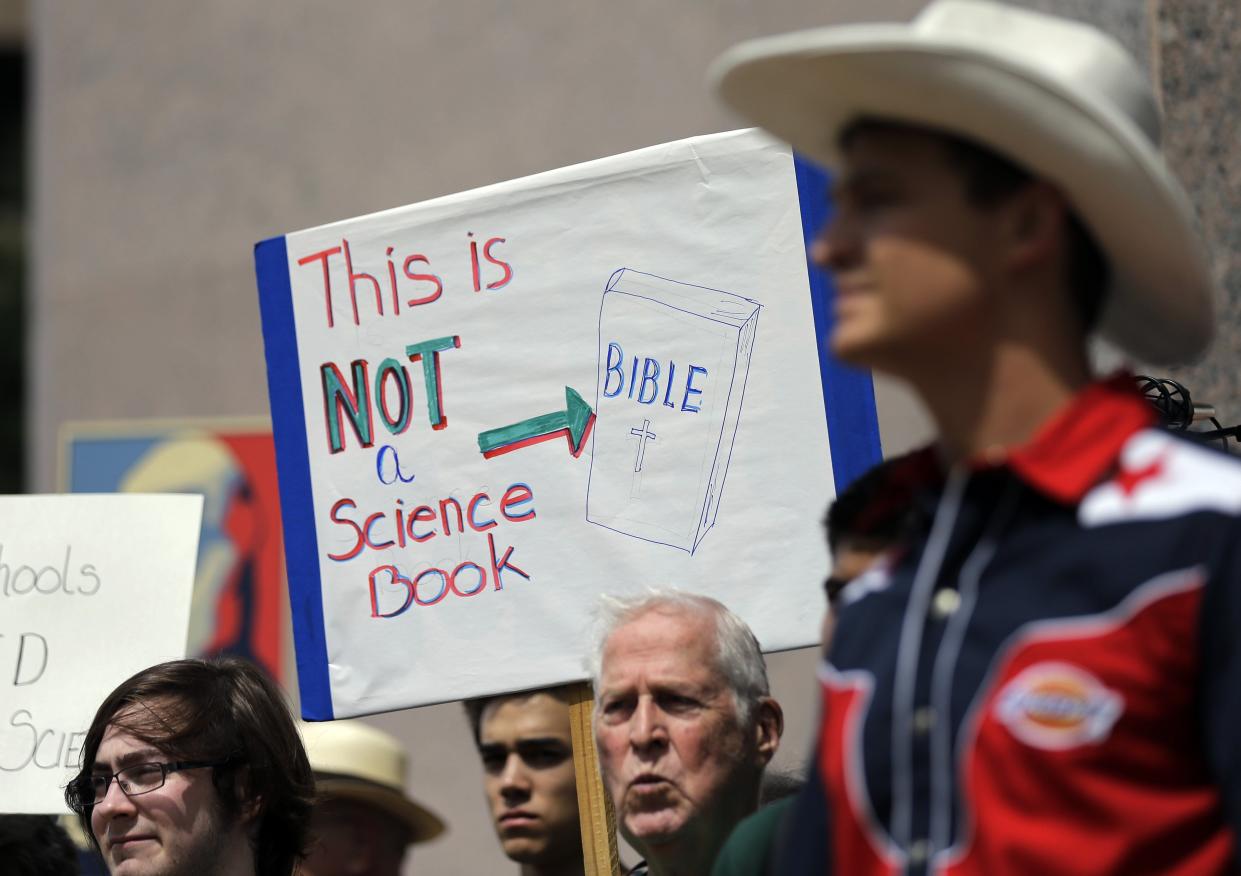Could polarization on the Texas State Board of Education push away textbook publishers?

The State Board of Education approved a swath of science textbooks Friday to be used for instruction in Texas classrooms after it asked publishers to make some changes to their content to placate board members' criticism of climate change and evolution education.
Although the board's vote brought to the surface its members' disagreement about how Texas students learn about science, even critics of the board’s decision note that its effect on classroom instruction could be minimal. In Texas, school districts don’t have to select textbooks from the state board’s approved list.
Still, some educators worry that continued polarization on these topics could drive away textbook publishers, which can find more standard markets in other states.
The board, which oversees state curriculum and instructional materials, voted Friday to approve a list of textbooks from about two dozen publishers after having lengthy discussions earlier in the week, during which board members brought up concerns over the handling of climate change and evolution education.
On Friday, the board approved the textbooks after asking for some changes.
Some board members took issue with a McGraw Hill textbook that had a diagram of evolution showing humans shared an ancestry with monkeys.
Member Julie Pickren, R-Pearland, also raised concern with Discovery Education Inc.’s portrayal of climate change. She worried that the books take a stance in line with the United Nations’ policies around incorporating climate change awareness into business practice.
“They have an anti-fossil fuel stance,” Pickren said.
Wayne Christian, a member of the Texas Railroad Commission, praised the board's vote, noting that students "don't need a leftist agenda brainwashing them in the classroom to hate oil and natural gas."
The Railroad Commission regulates the state's oil and natural gas industry.
It was disappointing to see the textbooks that the board approved, said Glenn Branch, deputy director of the National Center for Science Education. He said the books presented evolution and humans' contribution to climate change as uncontroversial, he said.
“It's certainly still possible for Texas' students to get a sound scientific education in general and in regard to evoluation and climate chagne,” Branch said. “It's just going to be despite of the Texas State Board of Education.”
It’s likely that given the polarization on the board, districts will be more thoughtful about which textbooks they pick instead of simply selecting a book off the state's list, said David DeMatthews, a UT professor of education leadership and policy.
Board Member Marisa Perez-Diaz, D-San Antonio, also worried that the board’s criticism could drive away businesses from working with Texas.
“If we continue to behave this way as a board, my fear is that we will render ourselves irrelevant moving forward when it comes to what publishers want to work with us,” Perez-Diaz said.
While Texas is a huge market, with 5.5 million public school children, many other states are adopting similar science curriculum, making it easy for publishing companies to write standard textbooks for multiple markets, DeMatthews said.
“Texas can kind of find itself outside of the mainstream and the major textbook companies not really being as responsive to them,” DeMatthews said.
Textbook companies might be less willing to make revisions for Texas if it means alienating other states, he said.
“At a certain point, other states might begin to question the values of these publishers if theyr'e willing to negotiate on agreed upon facts,” DeMatthews said.
If textbook publishers grow frustrated with Texas’ textbook adoption process, they might just choose not to go through with it and instead shift their focus to other states, Branch said.
“It’s the districts and teachers that are harmed,” Branch said. “They’re being offered less of range of tools.”
The board approved-textbooks will be available to schools next year. The board adopts new curriculum and materials to correspond with the updates on a regular basis.
This article originally appeared on Austin American-Statesman: Texas SBOE asks for content changes. Will textbook publishers stay?

